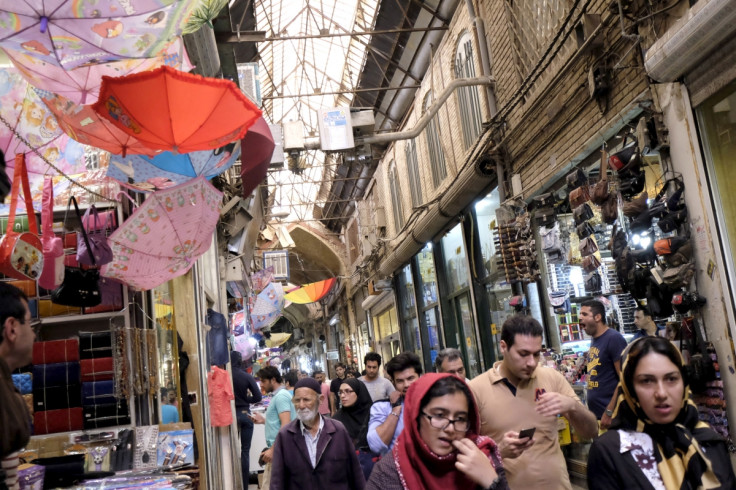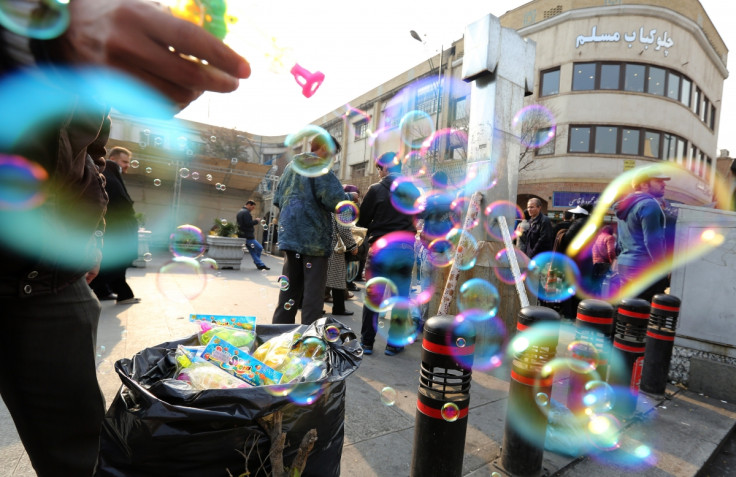Iranian migrants head home as nuclear deal boosts job prospects and hopes of better future

Roudabeh Vakil Monfared was just three years old when she left Iran with her family to live in Germany, but only six years later she returned to her homeland. A semi-professional tennis player in her youth, Monfared, 25, studied genetics at an Iranian university until the crippling US sanctions on Iran forced her to once again leave the country in 2014, and move to California.
The trend has traditionally been for young ambitious Iranians such as Monfared to leave Iran for opportunities in the US or Europe, especially during the decades that Iran's status as an international pariah state crippled the country's economy. But the success of the nuclear deal with the US and European powers has turned this on its head. Now young Iranians like Monfared are looking to Iran and wondering if it is time to head home.
"When I decided to leave Iran it was not clear where the nuclear talks would end up and there were many difficulties," she said. "If the nuclear deal had been reached last year, I might have stayed in Iran. I had a good life there and I was happy. But ever since I have come here, I am just counting the days to return to Iran."
Monfared plans to return to Iran as soon as she finishes her Ph.D. She thinks that the impact of the nuclear deal will be economic as well as political, with new ministers coming into government and a renewed focus on education – one of the things that attracted her to the US in the first place. She may even go back to playing tennis.
"The reason why I migrated was to live in a country where I could get respect and recognition that I deserved for the efforts I put into both sport and work. Now hopefully I can see the new government and try to make things better. If everything goes on like this, I will go back to Iran," she said.
Unlike Monfared, Soheil Salim Zade, 24, never left Iran, but the political changes of recent months has convinced him that was the right decision. He is a prominent composer and musician and has worked with famous conductors and composers in both Iran and Azerbaijan. He has a solid fan base in the country and is happy in Iran.
But it was not always that way. At high school, he tried to win medals for scientific research because he, like many of his fellow students, saw scholarships to foreign universities as a way out of Iran.
"My friends used to talk a lot about migration and all they had in mind from winning medals was to get admissions from universities abroad," he said. "I wasn't sure if moving abroad was a way to find happiness. But when things didn't go well in the country, I became more serious about my decision and I started to spend days to search for living conditions in foreign countries and I even had a place in mind.
"But finally I reconsidered my decision. Iran is now on the right track of progress and I feel that I can have a role in this process. If all of us migrated and left this country then we would have to bring people from space to make this country a place to live. I like to stay here and try to solve problems."
Ali Amir Zadeh, the manager of a company in Tehran that helps Iranians migrate, confirmed that the election of Iranian president Hassan Rouhani had indeed seen a reversal in migration from Iran. He observed that even in the first month of Rouhani's government, there was a significant fall in the number of people approaching his office for help to leave Iran. This is only expected to continue in the wake of the nuclear deal.

"The number of those migrating for financial reasons has decreased. There was always a large amount of motivation for migration among Iranians who seek asylum in other countries, but the number of these people has decreased also due to stricter regulations from the EU, Australia and the US," he said.
"But we have seen an increasing number of people withdrawing their applications to migrate because they find Iran a better place for living. This is particularly the case for doctors, dentists, investors, social science graduates." Zadeh said a significant number of students still opted to study overseas.
I don't want to spend my life in Iran even though my financial situation would probably be good. Unless the culture is not fixed, I think I'd rather live in another country.
Not everyone is as optimistic. When IBTimes UK visited Tehran airport, the departure hall was full of young Iranians lugging suitcases around as they waited for flights to Europe, the US and elsewhere. Sohrab Akbari, 27, moved to Germany after four years of trying to make a living in Iran following his graduation as a mechanic. He said that despite the changes in recent months, he had no intention of returning.
"Now hopefully my country is experiencing a rational government but it takes time for the damage to be fixed and for the industry and economy to come alive," he said. "It was hard for me to leave Iran, I had to leave everything behind, but as soon as I first arrived in Germany I realized how different it was to Iran.
"My country has badly suffered in recent years. The habits of lying and hypocrisy have increased and people have lost their dignity and values because of economic mismanagement and pressures of sanctions. I don't want to spend my life in Iran even though my financial situation would probably be good. Unless the culture is not fixed, I think I'd rather live in other country and live a happy and hopeful life."
© Copyright IBTimes 2025. All rights reserved.






















